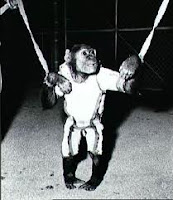Posted
on November 30, 2016
Another
day, another nation, another hero!
Today
people in the Philippines celebrate the birthday of one of their
greatest heroes, Andres Bonifacio.
Born
on this date in 1863, Bonifacio had to drop out of school at age 14
to support his siblings when his parents died. He created a thriving
family business making canes, paper fans, and posters. He continued
his education by working at a German trading firm, where he learned
English, and by reading a lot of history, biography, and fiction
books. He studied Philippine penal and civil codes (hey, don't we all
do that in our free time?), and he even founded a theater company
with his friends!
At
the time, the Philippines were a Spanish colony. But many Filipinos
wanted to be independent. Bonifacio was one of the founding members
of the political organization La
Liga Filipina,
which was Jose Rizal's
“baby,”
but when Rizal was seized and deported, Bonifacio and others began to
think that armed insurrection was necessary rather than the
oft-attempted peaceful reforms.
Bonifacio
is considered the Father of the Philippine Revolution because he was
one of the men who started a secret revolutionary society called the
Katipunan, and he became the military leader and the president of the
revolutionary government. He wrote articles that, when published,
helped convince tens of thousands of Filipinos to join the
revolution.
As
usual, humans are complex, and history is messy. There was this whole
complex, messy thing among the Filipino revolutionaries, and various
historians give different accounts of how it went down that a man
named Emilio Aguinaldo became the first president of the Philippines,
and why he arrested, tried, convicted, and executed Bonifacio.
Suffice to say that some Filipinos view Bonifacio as a hero and even
as the rightful first President of the Philippines, but others view
him as a traitor or criminal.
A
lighter look at the “Phils”
Here
are some interesting facts about the Philippines:
Four of the eleven largest malls in the world are in the Philippines!
A
volcano with a lake in the caldera, with a volcanic cone forming an
island in the lake, and a smaller lake inside that cone, and an even
smaller cone inside that lake...all of that can be seen at Taal
Volcano, one of the most active volcanoes in the nation!Four of the eleven largest malls in the world are in the Philippines!
The Philippines includes more than 7,000 islands, and Filipinos speak more than 125 languages!
There are rice terraces in the Philippines that remain as they have been for centuries and centuries – and that were built about 2,000 years ago!
Also on this date:
Yo-yo, cooties and boondocks are all words English borrowed from Filipino languages.
There are rice terraces in the Philippines that remain as they have been for centuries and centuries – and that were built about 2,000 years ago!
Also on this date:
Plan
ahead:
Check
out my Pinterest boards for:


























.jpg)

























